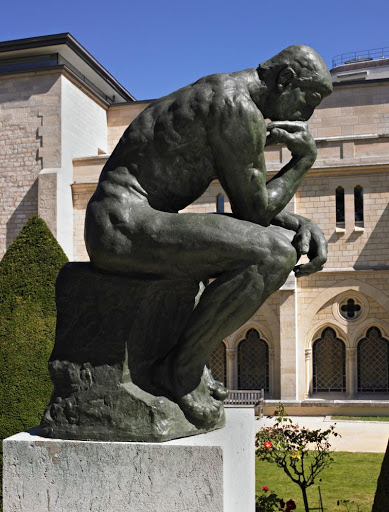If you didn't read it, let me summarize. What Erik Miller argues is that today Christian colleges are bearing the fruit of having danced with the devil, mammon to put a name on it. In the noble effort to stay alive, they've pursued the American dream instead of a Kingdom vision. Just down the road, for good sound economic reasons, a college dumped their English and philosophy departments and pruned back history and theater. That's the kind of move Erik Miller despises.
Old fogies like me want to believe that those humanities courses and programs, what most call "the liberal arts," are the heart and soul of every institution of higher learning, Christian or secular. If you can't help feeling that way, in all likelihood you're as old as I am.
Erik Miller's claims that good Christian academics have gone a-whoring after filthy lucre and thereby walked away from all that is good and right. They're in danger for clearly spiritual reasons. Playing on a line from American streets, Miller claims that " Our minds matter. The Christian mind matters. It’s time we—parents, pastors, presidents, philanthropists—take the sacrificial action required to show it. A silenced Christ, after all, is no Christ at all."
That's heady, Old Testament stuff, and he's not all wrong--that's why I put the essay up. But neither is he all right. Financial solvency is a good, good thing. It's silly to wish a college didn't have to stay afloat financially. Seems to me that college admins have to be wily as foxes--doesn't it say that somewhere in the Gospels?
Mark Edmundson's "Teach What You Love," in a recent American Scholar, is actually a similar essay, an insider's indictment of yet another angle of the phenomenon Erik Miller outlines, but without Miller's "Christian" context. Edmundson looks at a similarly destroyed landscape and laments all over the page. With good reason.
First, he reviews the exciting role that critical theory took throughout English Departments in the last years of the 20th century. He's right. If you didn't do lit crit back then, you weren't listening to the right music. He claims much of literary criticism was negative--Derrida, Foucalt and other philosophers bearing down on the notion that lit'-chwa-chure didn't do what people said it did. Like Miller, Edmundson sees desolation all over the landscape, but he admirably points the finger at himself as the guilty party. The demise of the English department, he says, derives from a self-inflicted wound.
But the essay doesn't stop there. Instead, as the title indicates, it redirects an English department to do what he claims it did long before the nay-saying crowd appeared from the darkness of the lit crit forest: "Teach literature. Teach the literature you love."
Taken at face value, Edmundson might be thought of abandoning critical theory all together and, in the process, critical thinking itself, perhaps the most important "behavioral objective" of traditional higher education. That's not the point. Oddly enough, his point is spiritual--English professors have too quickly abandoned what they love.
Both essays begin with the same sad assessment: liberal arts education is in lousy shape. Miller blames the soul; primarily, Edmundson blames the mind. They're both at least partially right about cause, and, sadly enough, and fully right about effect: the role of the humanities in higher education is in deep, deep trouble.
My grandfather graduated from Parkersburg (IA) High School in 1897. His diploma hangs on the wall in our library. It lists the courses he took at Parkersburg, courses no one teaches anyone anymore--Cicero and Latin Grammar. That diploma has always served to remind me that things change. They do.
And while dealing with change remains a problem, especially with people who reach their three-score and ten years, the inevitability to avoid it requires all of us to adjust, to change.
I love both essays. I ate 'em up, in part because I share their points of view.
But the truth is even still more difficult.

Messiah college historian John fea wrote about the miller essay recently in his WAY OF IMPROVEMENT blog. Both his essay and yours were worth reading. Thanks
ReplyDelete